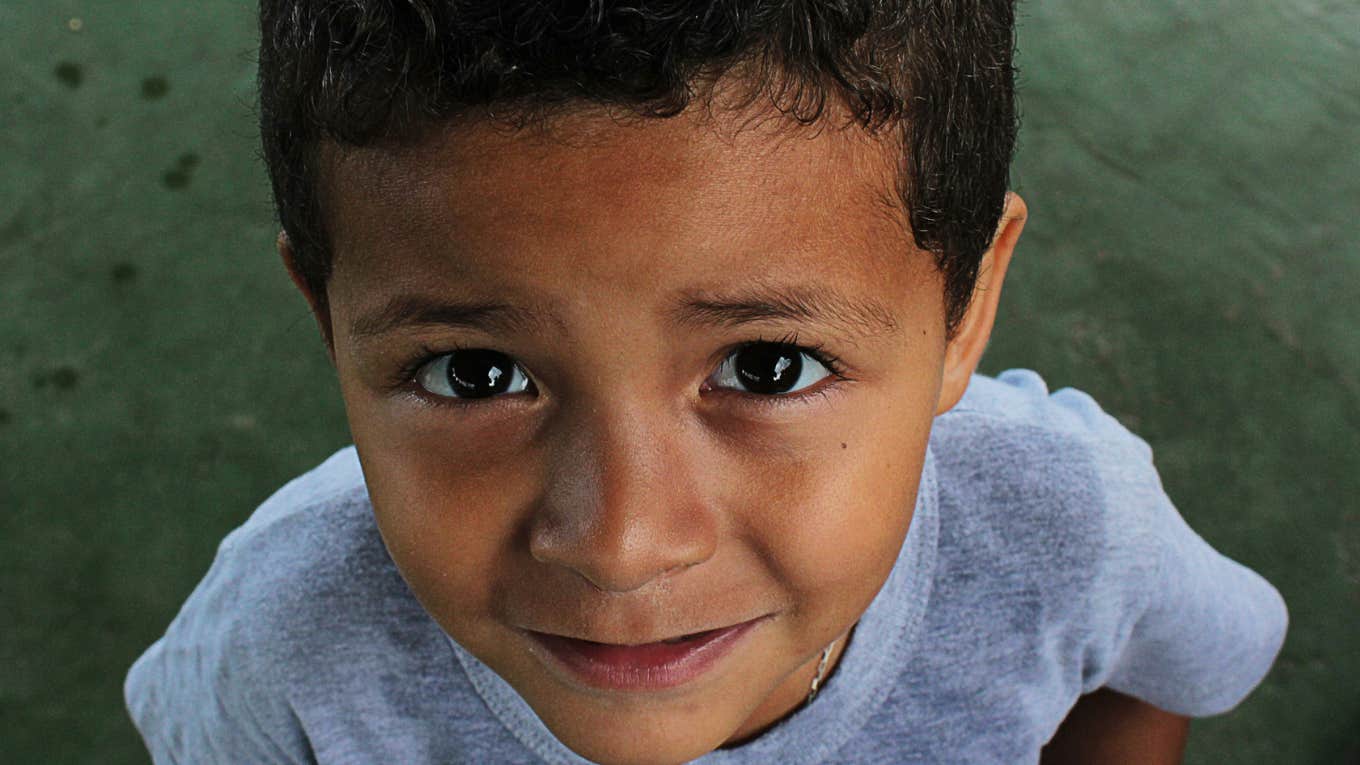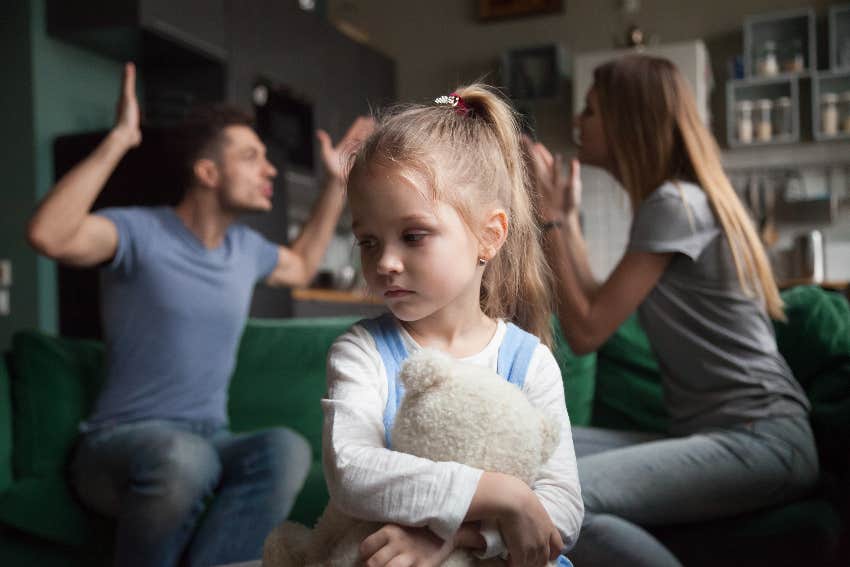'Kids Are Resilient' And 7 Other Lies Divorcing Parents Believe
Your divorce affects your children more than you realize.
 David Rangel | Unsplash
David Rangel | Unsplash Editor's Note: This is a part of YourTango's Opinion section where individual authors can provide varying perspectives for wide-ranging political, social, and personal commentary on issues.
As a former divorce mediator and current couples and family mediator, I have heard every excuse and lie that parents use to feel better about breaking up their family. I've outlined several of the most common divorce lies that you might be telling yourself (and your kids) if you're considering divorce.
'Kids are resilient' and other lies divorcing parents believe:
1. 'My kids want me to be happy'
No, your kids want their biological mom and dad to get their act together, behave like grownups, and create a stable, happy home for them. Kids are focused on their happiness and childhood gives them that privilege.
2. 'My kids will be better off'
 fizkes / Shutterstock
fizkes / Shutterstock
Probably not. Research shows that children of divorce experience higher rates of emotional and behavioral problems. They are also more likely to experience poverty and mistreatment, whether it is outright abuse or cruel indifference, from an unrelated adult in the home.
Some divorced parents may believe their children will be better off after a separation, mainly if the marriage is highly conflictual, the majority of research suggests that children generally fare better when parents remain together in a relatively stable, low-conflict marriage, even if not perfectly happy, as the disruption of a family unit can still be detrimental to a child's development.
The key factor is how well the parents manage the divorce process and maintain positive relationships with their children. While research provides general trends, a 2014 study reminded us that every family dynamic is unique, and it's crucial to consider the specific circumstances before making any assumptions about what's best for a child in a divorce situation.
3. 'My next marriage will be better'
That's unlikely. Second and subsequent marriages have higher divorce rates than first marriages. Why? Because people rarely change and tend to repeat the same poor behaviors. Plus, subsequent marriages often involve stepkids and blended families, which ramps up the drama and conflict all the more.
4. 'My relationship with my children won't change'
Yes, it will. A parent who does not live under the same roof as his or her child cannot have the same stature or influence in that child's life as a parent who does. Whether it's a 2 AM nightmare or a house fire, you're simply not there to do your job.
Regardless of the reason for the divorce, chances are good that at some point, your child will resent you for breaking up the family unit. Even worse, your child will likely blame him/herself, rationalizing that he/she was not "lovable" enough for the biological parents to work through their problems.
Divorced parents might believe their relationship with their children won't change due to a combination of factors including denial, a desire to protect their children from the pain of the divorce, a lack of understanding of the complex emotional impact on children, and sometimes, an unrealistic expectation that their parental role remains unaffected by the family structure shift.
Clinging to the idea that 'things will be okay' as a coping mechanism during a stressful time. To mitigate potential issues, a study published by the University of Illinois College of Medicine recommended that divorced parents must engage in open communication with their children, acknowledging the changes occurring and validating their emotions.
5. 'I won't have any regrets'
You probably will. Once emotions have cooled and you have your distance, you'll look back and wonder whether you should have worked harder to save your marriage and family.
This regret will deepen as you move into old age and realize you will never feel the pride that comes with having your children and grandchildren admire you as the family patriarch or matriarch.
6. 'We shouldn't stay together for the kids'
I can't think of a better reason to stay and work through your problems with humility and determination. Help is out there for those who have the strength of character to be accountable and ask for it.
The primary disadvantage of parents staying together solely for the kids is that it can expose children to constant, unhealthy tension and conflict.
2014 research explained that this can negatively impact their emotional development, potentially teaching them dysfunctional relationship patterns and causing anxiety or low self-esteem, even if the parents try to hide their issues. Children can sense the strain, which can be more detrimental than a well-managed separation.
7. 'Divorce will solve my problems'
 fizkes / Shutterstock
fizkes / Shutterstock
If you have kids together, divorce won't solve your problems; it will only create a new set of problems. You will worry about your ex-husband's new girlfriend, and whether she'll call you if your child gets sick or scared. You will worry about your ex-wife's new boyfriend, and whether he's the one bathing your child.
Don't fool yourself. It's unlikely your ex-spouse will remain single for long, and once he or she starts dating, you will have no control over the strangers that waltz in and out of your child's life.
8. 'Kids are resilient and will adapt to this new situation'
Think this won't affect them in the long term? Kids don't adapt, they make do. When you break up their home or bring your new love interests into their life, they hunker down emotionally and do their best to cope.
Like it or not, you have taught them that love is unreliable. As adults, children of divorce are more likely to also be divorced and break up their own families.
Of course, divorce isn't always a bad thing. It's the best course of action in some cases, such as abuse, unmanaged personality disorders, and infidelity, to name a few.
There are cases where one spouse is entirely at fault and where kids are better off having a destructive or dangerous parent out of their home or even out of their life.
But other couples choose divorce instead of keeping their promises to work through their problems, put their spouse's needs ahead of their own, see the conflict from his or her point of view; put their obligations as parents above their pettiness as partners, and do whatever it takes to bring happiness back into their marriage and home.
A sense of obligation toward your spouse and children is the glue that keeps the home together through the weak and angry spots, giving strength and love a chance to return. It binds a couple together while they work through their problems.
A sense of obligation to others is a virtue, but it's one that our self-focused culture has largely abandoned. The ancient Romans called it pietas. In its loosest sense, it was the highly-esteemed "sacred duty" to one's biological family, one that superseded self-interest. It's an Old World virtue that the New World would be wise to embrace.
Debra Macleod, B.A., LL.B. is an author and conflict specialist who offers a fast, focused, and no-nonsense alternative to couples counseling and ineffective marriage coaching systems.

